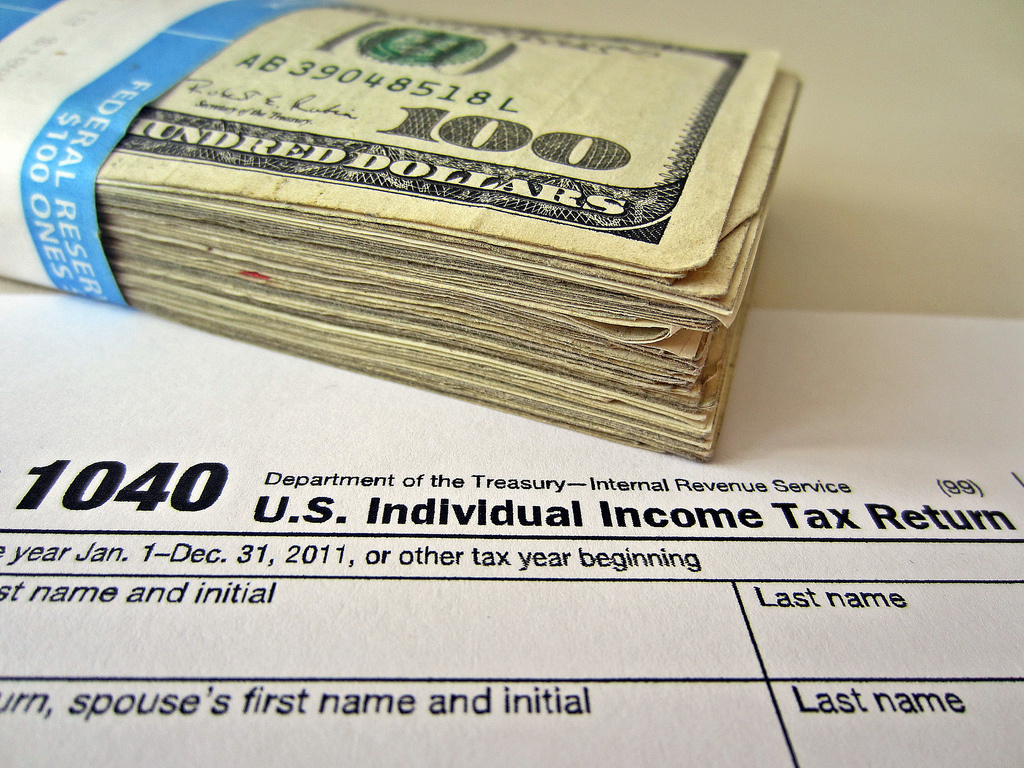
The plans for the reform of the American tax system sound good; however, they are not very well thought-through.
It is time to praise Donald Trump, for once. So, we will do it: his plans to reform the American tax system are basically sound and good. Lowering the highest corporate tax worldwide from 35 to 15 percent is urgently necessary; a simplification of the income tax system is overdue (presently, a tax return in the United States comes close to a dissertation in mathematics); and the elimination of the inheritance tax brings more fairness for those who have achieved something with already-taxed money (in Austria, the SPÖ* wants to expropriate this group of people with the introduction of an inheritance tax, although one pays up to 55 percent income tax in this country – not at the maximum 35 percent as Trump plans for the U.S.).
So, then, congratulations, Donald Trump, for this “really big,” “huge” and “tremendous” tax reform as you describe it, among other things, on Twitter!
There is, unfortunately, a hitch that is not small, but instead just as tremendously big: there is no plan for how to finance this tax reform – except with new debts.
The reform would cost the U.S. between $6 and $7 trillion over ten years. The reduction of the corporate tax alone would be reflected in a shortfall in the amount of $2.2 trillion, as calculated by the Committee for a Responsible Budget. One expects a loss of $1.5 trillion through cunning tax trickery that allow individuals to pay the favorable 15 percent as a corporation instead of the 10, 25 or 35 percent that are supposed to be due for salaries and income.
On the other side are savings of up to – in the best case – $4 trillion through the elimination of all tax deductions – except for real estate loans and donations. The rest, U.S. Secretary of the Treasury Steven Mnuchin explained at the presentation of the plan (which was, by the way, presented on a single page), will come in from additional tax revenues because the reform will stimulate the economy.
Sound familiar? Yes, one said that about the tax reform in Austria, too. It did, in fact, boost consumption in the past year but not as much as the coalition envisioned. At the end of the year the new debt climbed by 0.5 percent to 1.6 percent while the new debt in all other E.U. nations declined.
Economic growth in the U.S. would have to amount to 4.5 percent on average so that Trump’s plan could finance itself – more than double as much as forecast. Thus, they are plans from the realm of dreams, in which Mexico will finance a wall on the border with the United States, and in which more people attended the inauguration of Donald Trump than that of Barack Obama.
The reform along these lines will, hopefully, fail because of those Republicans who take their political, fiscal views more seriously than Trump and some of their presidents. Under Ronald Reagan, for example, the national debt rose from 25 percent of the gross domestic product to 39 percent – and that although Reagan raised taxes again several times after his reform and rode a growth wave the likes of which the American economy has not experienced since (how big a part Reagan’s reforms played in this growth is debatable). With Trump’s reform, the U.S. would ultimately sink into a sea of debt and, in so doing, once again endanger the world economy after 2008.
Politically, the rush job is, of course, comprehensible. Tomorrow, Saturday, Donald Trump will be in office 100 days and has been able to realize hardly any of his campaign promises. So, one likes to point to a plan that would give every U.S. citizen more money. That’s how one buys appeal – regardless of what it will cost in the end.
*Translator’s note: Social Democratic Party of Austria

Leave a Reply
You must be logged in to post a comment.